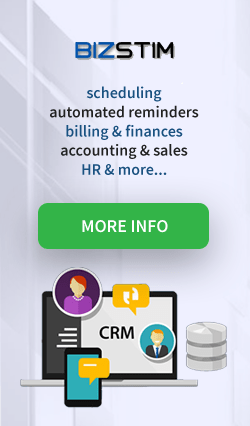
Are you wondering how crucial page speed is to your SEO rankings? The answer is, somewhat important. In the world of website performance and ranking, page speed plays a role in determining your visibility in search engine results pages (SERPs).
When it comes to page load time, faster is better. Studies have consistently shown that websites that load quickly tend to rank higher in SERPs compared to slower loading websites. In fact, Google's algorithm takes page speed into account, especially for mobile searches. So, if you want to improve your SEO rankings, optimizing your website's page speed is important.
Although there is some indication that page speed is not the "magic bullet" for SEO, users tend to interact more with your website and stay longer. Therefore the impact page speed has on your site is nuanced. Brian explains these results in the following video:
The Impact of Page Speed on User Experience
Page speed directly affects user experience on a website. When your website loads quickly, it enhances user satisfaction and engagement. Users are more likely to stay engaged, browse through your site, and take desired actions, such as making a purchase or filling out a form. On the other hand, if your website takes too long to load, users can become frustrated and abandon it, leading to a higher website abandonment rate.
Studies have shown that even a one-second delay in page load time can result in a 7% decrease in conversions. In today's fast-paced online world, users expect instant results and seamless browsing experiences. If your website fails to meet these expectations, it can negatively impact your user engagement and ultimately harm your SEO rankings.
To improve website performance and user experience, it is crucial to optimize your page speed. By reducing loading times, you can create a more favorable environment for users to interact with your content. This not only increases user satisfaction but also reduces the bounce rate, as users are more likely to stay on your site and explore further.
The Relationship Between Page Speed and Website Usability
Website usability is closely tied to page speed. A slow-loading website can make it difficult for users to navigate and find the information they need, leading to a frustrating experience. In contrast, a fast-loading website improves usability by providing a seamless and efficient browsing experience. Users can quickly find what they're looking for, increasing their satisfaction and likelihood of returning to your site in the future.
| Website Loading Time | User Satisfaction | Website Abandonment Rate |
|---|---|---|
| Less than 3 seconds | High | Low |
| 3-5 seconds | Moderate | Moderate |
| More than 5 seconds | Low | High |
As shown in the table above, faster loading times lead to higher user satisfaction and lower website abandonment rates. By optimizing your website's page speed, you can create a positive user experience, improve website usability, and ultimately enhance your SEO rankings.
Optimizing Page Speed for SEO Rankings
When it comes to improving your website's SEO rankings, optimizing page speed is a crucial factor to consider. By implementing various page speed optimization techniques and website optimization strategies, you can enhance your website's performance and provide a better user experience. Here are some key methods to optimize your page speed:
Reduce Server Response Time
One of the first steps in optimizing page speed is to reduce server response time. This can be achieved by choosing a reliable and fast hosting provider. Ensuring that your server responds quickly to user requests is essential for delivering a seamless browsing experience.
Minimize File Sizes
Compressing images, using efficient coding practices, and minifying CSS and JavaScript files can significantly reduce file sizes and improve page speed. By minimizing the size of these files, you can ensure that your website loads quickly and efficiently, providing a better user experience.
Caching and Content Delivery Network (CDN)
Implementing caching mechanisms and utilizing a content delivery network (CDN) can also have a significant impact on your website's page speed. Caching stores static versions of your website, reducing the time it takes to load each page. A CDN distributes your website's content across multiple servers worldwide, ensuring faster loading times for users regardless of their location.
Mobile Optimization
In today's digital landscape, optimizing your website for mobile devices is crucial. Mobile users expect fast loading times and a seamless browsing experience. By implementing responsive design, compressing images, and minimizing code, you can optimize your website for mobile devices and improve page speed.
By implementing these page speed optimization techniques, you can enhance your website's performance, improve user experience, and ultimately boost your SEO rankings. Prioritizing page speed optimization is essential in providing a competitive edge and attracting organic traffic to your website.

Conclusion
Page speed is important, even though the level of that importance is hotly contested, when it comes to SEO rankings and improving website performance. By optimizing your website's page speed, you not only enhance your chances of ranking higher in search engine results but also provide a better user experience for your visitors. Improving your users experience is necessary for driving traffic to your site, if that is your goal, and becoming a an authority domain in your chosen industry.
To optimize your page speed, focus on reducing server response time, minimizing file sizes, and implementing caching and mobile optimization techniques. Choosing a reliable and fast hosting provider, compressing images, minifying CSS and JavaScript files, and utilizing content delivery networks (CDNs) can significantly improve loading times. Additionally, optimizing your website for mobile devices is crucial in today's mobile-centric world.
Don't prioritizing page speed optimization if it affects user engagement. As Brian from Backlinko discovered, there are diminishing returns when you focus too heavily upon page speed at the expense of quality content. Page speed is important but also make sure the content you provide is impactful and useful to the user.
Did you find the topic interesting and informative?








